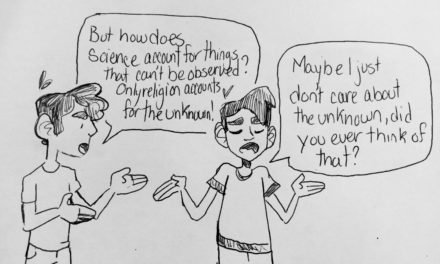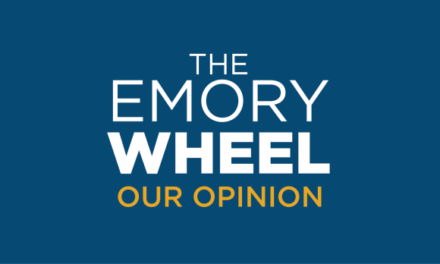Humans rule the world arrogantly and are the driving force behind environmental change in what is dubbed the Anthropocene epoch. Though our zealous stride toward greater discoveries deserves to be lauded, literary critic Fredric Jameson’s phrase, “Postmodernism is what you have when the modernization process is complete and nature is gone for good,” reminds me of the haunting power we hold.
We are the judge, jury and executioner, holding control of nature’s fate in our cumbersome hands. Yet as we continue to revolutionize, we are imprinting a legacy that will remain long after we have ceased to exist. Jameson predicts a grave end to the natural world, warranting a pressing discussion on human hubris and how we must hold ourselves accountable for our selfish actions.
With Jameson in mind, I implore us to consider: is it worth our egos to play Russian roulette with the only universe we have?
From polluting oceans to illegal wildlife trade, the effects of human behavior on the environment remain well documented. We crave to surpass the limits of nature, ruthlessly exploiting the environment – bending it to our will just because we can. Anthropocentrism, the belief that humans are the most integral being in the universe, may remind us of our priority to improve our own livelihood. However, the roots of anthropocentrism lie in the dissociation between humans and the environment centering the world around human values. As a result, our ego triggers the destruction of nature. Anthropocentrism neither recognizes that we are a part of a greater ecosystem nor accounts for nonhuman entities equally integral to maintaining the natural balance.
Since the 1970s, Earth’s population has doubled in size. As a result, we have accelerated deforestation and land degradation. Natural resources that once supported local communities are collapsing. Agricultural runoff and plastic pollution have damaged 66% of the ocean’s surface. The coral reef ecosystems are predicted to disappear within 80 years. The global population of wild animals has plunged by 68%, and over a million species are at risk of extinction. Compounded by globalization and worldwide trade, our abuse of nature is insulated and invisible, sheltering us from the true magnitude of our problems and causing us to lose any imperative to make sustainable choices.
Among these environmental problems is the illegal wildlife trade. Second only to habitat destruction, illegal trade devastates wildlife populations, causing higher extinction rates, the endangerment of human livelihood, the introduction of invasive species and numerous other detrimental effects.
International trade poses an unnecessary existential threat to animals; for every live illegal parrot available to buyers, three never make it to the market. Displaced animals cannot return home either; if they are rescued, they are forced into captivity and sometimes euthanized. While most trade is legal and sustainable, illicit trade has flourished under lenient regulations and animal “harvesting,” a euphemistic excuse to kill under the guise of maintaining the natural order, which can lead to reproduction and evolutionary changes in animal species.
The existence of large trafficking syndicates undermine a country’s efforts to protect and sustainably manage its natural resources. It also exacerbates corruption and introduces unwanted viruses and pathogens to foreign countries. But make no mistake, the success of the poaching business is not one sided. It is fueled by high consumer demand. Our desire to own rare animal products, like rhino horns, turtle shells and elephant tusks supersedes our regard for where they originate from, turning it into a wildly profitable business estimated to be worth $7 billion to $23 billion in annual value.
While the Convention on International Trade in Endangered Species of Wild Fauna and Flora aims to ensure the legality, sustainability and traceability of wildlife trade on the international level, domestic trade is beyond its jurisdiction. We need to start enforcing strict domestic policies by increasing port regulations and harsh sentences for poachers to prevent them from utilizing loopholes to bypass the law. But controlling the supply chain is not enough. As consumers, we must also be wary of the products on the market and where they come from.
Wildlife trafficking is not the only pressing environmental issue, but it serves as a prominent example of the way humans have conducted themselves thus far. Human society may bask in its quick ability to adapt, but it needs to strike a balance with nature. We have to critically reflect on our political infrastructure and societal values, which tend to shove nature off to one side as the unfortunate consequence of industrialization.
We will always be fighting one fire after another, but it should not be at the cost of burning down the world. It is not too late to recover before our hubris inevitably catches up to us. The world was not built to serve us. Stop treating it that way.
Sophia Ling (24C) is from Carmel, Indiana.
Sophia Ling (she/her) (24C) is from Carmel, Indiana and double majoring in Political Science and Sociology. She wrote for the Current in Carmel. She also loves playing guitar and piano, cooking and swimming. In her free time, she learns new card tricks and practices typing faster.





